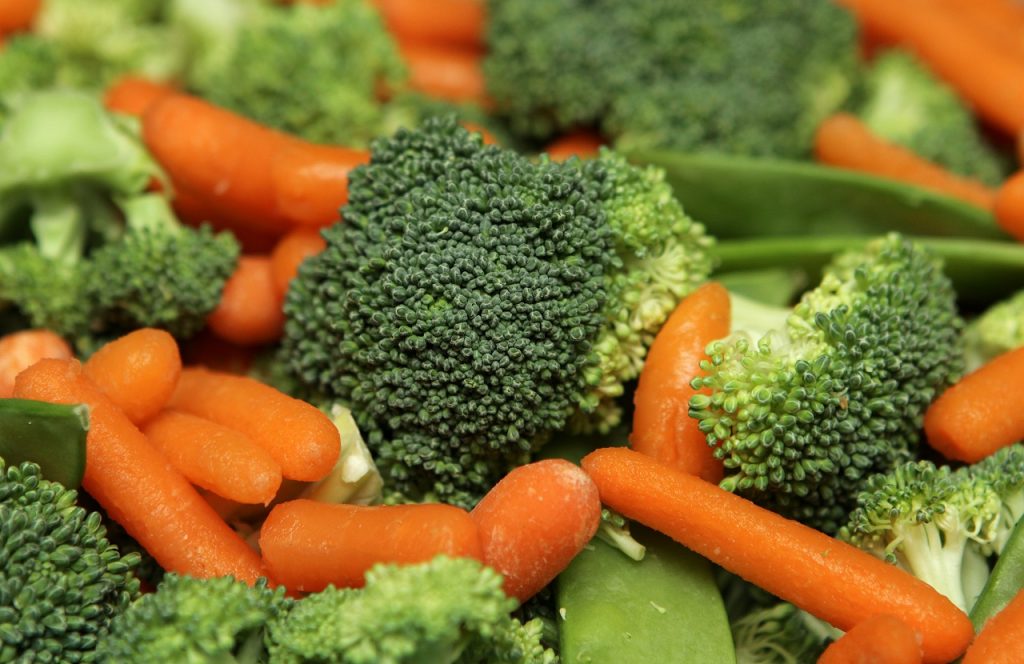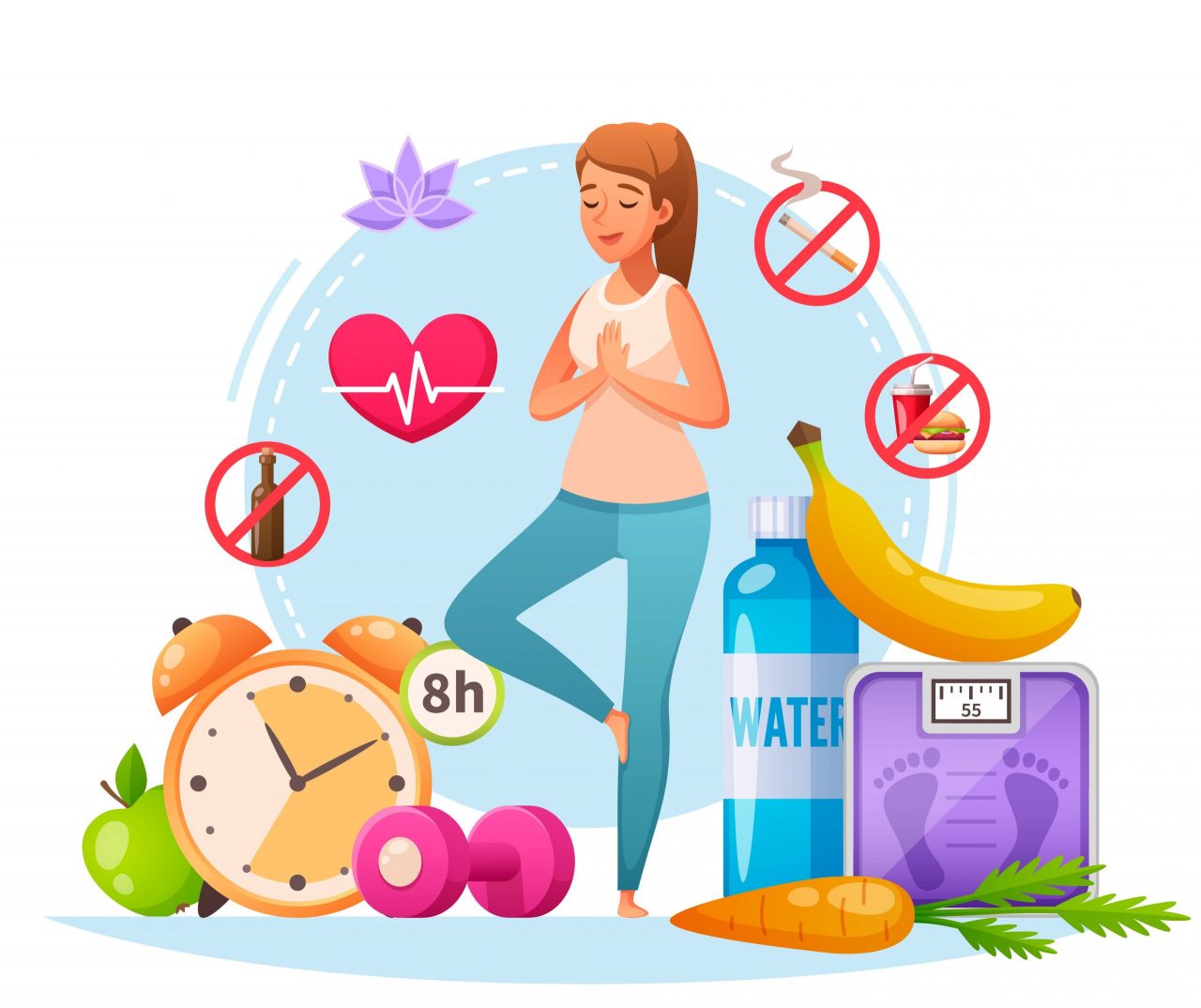 While discussing vegetables, a whole bunch of vibrant plant food comes to mind, each unique with different shapes and sizes. Many times, we stand confused in front of a grocery store or feel lost in a vegetable market, thinking which vegetables to pick! Each vegetable has its own benefits and more the variety you add to your diet, the greater the benefits!
While discussing vegetables, a whole bunch of vibrant plant food comes to mind, each unique with different shapes and sizes. Many times, we stand confused in front of a grocery store or feel lost in a vegetable market, thinking which vegetables to pick! Each vegetable has its own benefits and more the variety you add to your diet, the greater the benefits!
I have chosen 5 vegetables which we can call the “first among equals” and I will also talk about their hidden benefits!
1. Spinach
Do you remember what happened every time Popeye the Sailor Man consumed a can of spinach? He got pumped! Well, in reality, you won’t get iron fists as instantly as Popeye, but the whole thought is just indicative of the hidden reservoir of iron present in this dark green leafy vegetable. It’s not just iron, spinach is also a powerhouse of essential vitamins like Vitamin C, K, minerals such as Magnesium, Calcium and is loaded with fiber.
One cup of raw spinach (30g) provides 56% of your daily Vitamin A requirement plus your entire day’s Vitamin K requirement, all for just 7 calories. It is also very effective in optimising sugar levels in diabetics because of its high fiber and richness in antioxidants like alpha-lipoic acid which is found to increase insulin sensitivity in the body.
Spinach is also heart friendly and lowers blood pressure in hypertensive individuals because of its good potassium content. The micronutrients present in it also strengthens your bones and joints, improve digestion and make your skin and hair healthy and glowing.
Tips to consume:
- You can cook it in Indian style curry with paneer, peas or add in non-veg curries like chicken saag.
- Make parathas stuffed with spinach.
- Grill and toss them into salads or sandwiches.
- Blend them with some citrus fruit to make a smoothie.
- Add a dash of lemon to spinach curries or have spinach with citrus fruits to get the Vitamin C for better absorption of iron – especially if you are consuming it with a purpose to increase haemoglobin levels!
2. Carrot
We were always told that carrots are good for the eyes! This is not a myth. It is absolutely true. 100g of carrots can fulfil more than 100% (around 334%) of daily Vitamin A requirement, which is essential for eyesight. But their benefits branch out to more! It has the antioxidant beta-carotene (which gives carrots their vibrant orange color) is found to be very effective in preventing a variety of cancers
The sodium content of carrot is quite low (69g per 100g) while potassium content is superb (320mg). This makes it an ideal choice for hypertensive individuals to reduce blood pressure.
Tips to consume:
- Add shredded carrots to salad, wraps, cutlets, cakes, muffins
- Munch on carrot sticks as snacks with healthy dips like hung curd, hummus
- Juice it with a fruit and another vegetable to make a detox drink
3. Broccoli
Broccoli, which comes from the cruciferous vegetables family is considered as one of the world’s healthiest vegetables. The antioxidant sulforaphane, which is responsible for its bitter taste is found to be very effective in protecting or delaying the growth of cancerous cells.
When it comes to Vitamin C rich food, most people think about citrus fruits only but 100g of these green florets also fulfils 148% of your total day’s Vitamin C requirement. Isn’t that amazing?
Apart from boosting your immunity levels, natural Vitamin C helps regenerate the damaged skin cells, reduce the progress of wrinkles formation by promoting collagen formation and detoxifies the skin cells, making the skin look healthier and lustrous. And all these benefits come with very few calories.
Tips to consume:
- Keep it simple. Overcooking Broccoli destroys its flavour and also the antioxidants. Simply sauté it with vegetable oils like olive oil, add a dash of lemon and pepper and have it with hummus or tahini sauce.
- You can also roast it and add it to your wrap or top it on wheat bread based pizza.
4. Bitter Gourd
Popular among diabetics, Bitter Gourd is known for its insulin regulating effect. Almost every diabetic person has the habit of consuming bitter gourd juice in the morning or include it in cooked form regularly. Its glycemia controlling property has been proven by several scientific studies. Apart from that, it also carries a variety of hidden benefits.
These benefits include protection from cancerous growth and regeneration of healthy cells in the body. Its richness in dietary fibers (one cup provides around 8% of total day’s dietary fiber intake), with very less calories makes it a strong contender in weight loss diet plans. The folate and fibers present in it are found to be very effective in reducing LDL (bad cholesterol) and Triglyceride levels in the blood.
Tips to consume:
- Juice Bitter Gourd along with sweet flavoured fruits such as apples, add a dash of lemon and have a power-packed drink.
- Stir fry bitter gourd alongside other fiber-rich vegetables like bell peppers, babycorn, shredded paneer, etc. for a low carbohydrate, nutrient filled meal.
- Stuff with ground meat or vegetables and steam it until tender.
5. Ginger
It is one of the most common spices present in almost every Indian kitchen! Apart from its distinctive flavour and aroma, ginger has been used for medicinal purposes for centuries! Its potent anti-inflammatory action acts as a protective shield for the body cells from the damage due to dust, pollutants and germs. With this anti-inflammatory action, ginger is helpful in reducing osteoarthritis pain and exercise induced muscle soreness. Apart from preventing and curing various infections, ginger is quite effective in improving digestion. Several studies have found that intake of ginger has reduced nausea and bloating as ginger works in improving the gastric emptying time!
Tips to consume: Apart from adding it in different curries, ginger can be used in the form of ginger tea, ginger powder or added to sesame oil for topical use.
We hope this article helps you choosing your veggies from the grocer! If you have any allergies or medical condition, consult your doctor or nutritionist before consuming these. You can also reach out to your GOQii Doctor via the GOQii app. For further guidance speak to a certified expert by subscribing to GOQii’s Personalised Health Coaching here.
What’s your favorite vegetable? Let us know in the comments below.
#BeTheForce






